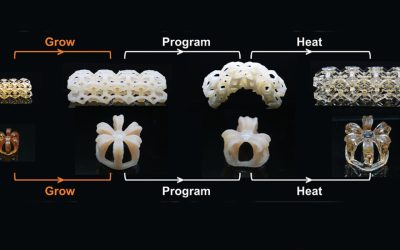Pennsylvania College of Technology’s Plastics Innovation & Resource Center has entered a three-point partnership to become the sole North American distributor of the Global Standards for Plastics Certification (GSPC).
The Global Standards for Plastics Certification is the only recognized method of apprenticeship certification in the world for the plastics industry. It provides universal recognition of plastics workers’ knowledge and capabilities, as well as demonstrated economic benefits to companies.
The certification process combines comprehensive, face-to-face instruction; interactive training; process simulation; and focused, on-the-job exercises for employees at their facilities. Training is customized to include modules specific to a company’s procedures and operations.
The PIRC has partnered with Polymer Training and Innovation Center at the City of Wolverhampton College in the United Kingdom. The City of Wolverhampton College is the new global center for administration and control of the GSPC.
“Our second partner is Paulson Training Programs, headquartered in Chester, Conn., which provides training software, manuals and other materials required to facilitate the training process,” said Hank White, director of the PIRC.
Paulson Training Programs provides a broad range of in-plant interactive courses, worldwide e-learning solutions and expert-led seminars to help injection molders, extrusion companies, blow molders, thermoformers, part designers and many other plastics professionals in the industry grow and compete on a global scale, using high-quality training solutions while utilizing the latest technology.
In its role, the Plastics Innovation & Resource Center will handle all administrative activities required to support the training for North American companies and to ensure that qualified employees receive GSPC certification. The PIRC will provide train-the-trainer workshops to key leaders at participating companies, provide verification services for ready candidates, and track the results of training by conducting pre- and post-training assessments.
Originally developed in the United Kingdom as an apprenticeship qualification, GSPC has evolved to become the most rigorous and comprehensive certification system available to the plastics industry.
The program was brought from Europe, where it has been used by more than 500 companies, to Indiana, where 30 companies participated. Pennsylvania became the second state to use the GSPC when the PIRC piloted the program five years ago. Since then, 20 Pennsylvania companies have participated.
Those companies reported positive impact in terms of morale, camaraderie, speaking a common language, and communication between management and hourly employees.
The program has also shown many tangible results for measurements such as improved production capabilities and increased quality, as well as a decreased scrap rate and fewer customer complaints.
Data relating to business improvements include:
• 100 percent of the employee-turnover metrics improved
• 100 percent of the customer-complaint metrics improved
• 80 percent of the quality metrics improved
• 75 percent of the production output/efficiency metrics improved
• One company reported a cost savings of more than $70,000
• One company reduced customer complaints by 5 percent
• One company reduced monthly scrap rates by more than $1,200 a month
• One company raised production output from 56 percent to 81 percent
• One company reported throughput efficiency increased by $1,000 per month
In addition to GSPC training and verification, services offered by the PIRC include project and process development, materials analysis, computer-aided design and technical support. Training is offered on company sites and on campus, where participants have access to modern equipment valued at more than $2 million.
“We are very glad that Pennsylvania College of Technology continues to support the GSPC Verifications for our employees,” said Dana Musser, of East Penn Manufacturing. “The program has become interwoven in our training program and ensures that each new employee has a standard and complete knowledge base.”
Source: Penn State
















